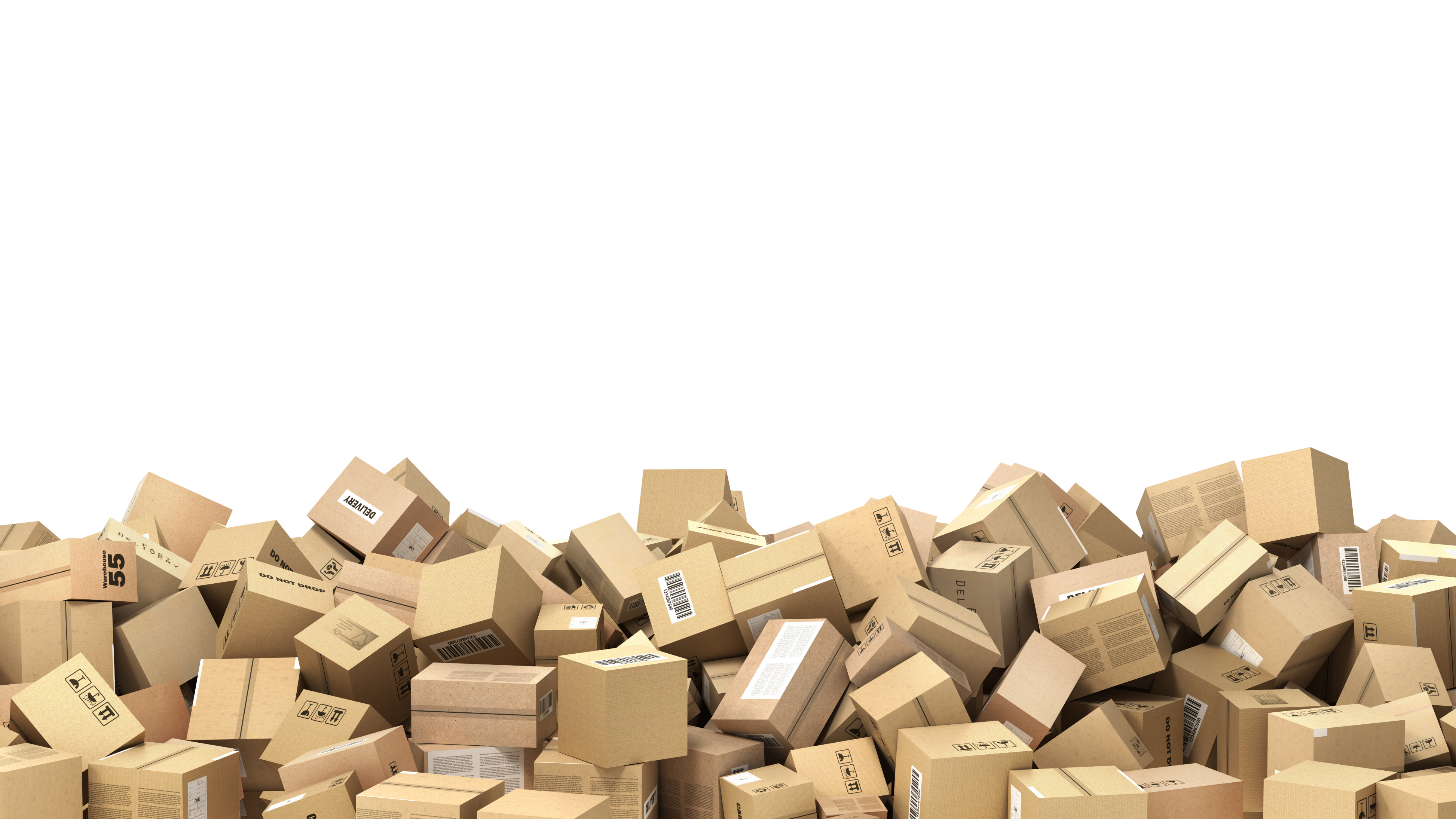
Home | News






CLDA Members are encouraged to share news about their company. CLDA may share on social media, in newsletters or the Customized Logistics & Delivery Magazine.

Ready to share your news with CLDA or the industry media? Learn from these tips and tricks on how to get noticed.

MAY 25, 2021 – WASHINGTON, D.C. – The COVID-19 pandemic has changed the ways shippers and 3PLs connect with last-mile transportation providers. Many shippers and third-party logistics (3PL) companies formed new strategic partnerships in the face of these changes to combat same-day delivery expectations fueled by the “Amazon Effect” during lock-down.
That was the conclusion of a new whitepaper entitled The Age of Amazon: Why 3PLs & Last-Mile Delivery Fleets Must Draw Closer. The whitepaper is a joint project of the Customized Logistics & Delivery Association (CLDA), the trade association for final-mile delivery companies, and the Transport Intermediaries Association (TIA), the voice of the third-party logistics (3PL) industry.
“The last-mile sector has growing opportunities for 3PLs to broaden their menu of supply chain services by creating partnerships with local fleets operated by CLDA members,” said Steve Howard, president of CLDA. “That’s why we partnered with TIA to create this whitepaper and offer it to every member of the supply chain.”
“The final-mile logistics is an important relationship for our members and is a multi-billion-dollar industry that plays an integral role in the supply-chain, noted Anne Reinke, TIA President & CEO TIA “We brought together the expertise of the two associations’ members as well as industry analysts to highlight that relationship and to pinpoint trends where 3PLs and last-mile delivery providers can join together to compete against Amazon’s market dominance.”
The whitepaper points to four areas where these two players in the supply chain can and have worked together to meet the increasing demands of consumers.
E-Commerce: With people spending more time at home during the pandemic, online sales increased by 44% in 2020 to reach 21.3% of total retail sales. Delivery of heavy goods purchased through e-commerce channels is an area of opportunity the whitepaper cites for fleets that can meet specialized delivery requirements such as setup and reverse logistics for items such as medical devices, exercise, and home office equipment.
Medical Lab Logistics: Laboratory tests for blood and tissue samples are conducted 13 billion times a year in the United States and have time-sensitive and specialized handling and delivery requirements. Last-mile providers have seen their medical business increase significantly during the COVID-19 pandemic, including work transporting vaccines with hospital networks.
B2B: Freight opportunities in the B2B last-mile sector abound for pallet-sized LTL freight and heavier items that have unique service requirements such as after-hour deliveries to business and residential customers. These are best met by a combination of 3PL and last-mile providers. Motor carriers and 3PLs are chasing opportunities in the last mile of this sector to offer blended warehousing and delivery services that smooth order fulfillment for customers that experienced supply chain disruptions from COVID-19.
Special Projects: Last-mile fleets that operate facilities near large urban centers, like New York City, are seeing demand increase from shippers, 3PLs, and motor carriers to utilize their local delivery services. These customers are dropping off large-volume truckload and LTL shipments at their docks. Last-mile carriers separate volume loads into smaller shipments and make urban deliveries on repeat schedules, such as distributing shipments to retail stores.
Drawing on the expertise of industry analysts and members of both associations, the whitepaper also identified a number of additional facts about the supply chain:
Download for Your Free Copy Now!
About the Customized Logistics and Delivery Association
The Customized Logistics and Delivery Association (CLDA) is a non-profit professional association that connects and leads members of the time-critical logistics and delivery industries. The association serves the needs of its 2,900 essential service members who are logistics professionals, carriers, shippers, drivers, air cargo logistics providers, 3PLs and vendors servicing today’s supply chain companies. The CLDA gives its members access to a diverse network of logistics professionals looking to create new business opportunities and share decades of practical insights. They provide an avenue for amplifying members’ voices on key issues and helps them participate in the regulatory discussions shaping the industry. The CLDA keeps members informed and educated on trends, current issues and best practices.
CLDA’s Final Mile Forum & Expo is expected to be the logistics industry’s first national conference to be held in-person following the COVID-19 pandemic. It will take place June 23-25 at Caesars Palace in Las Vegas and will feature educational sessions, networking events, and a front-row seat to the industry’s latest innovations.
For more information see www.clda.org.
About the Transportation Intermediaries Association
The Transportation Intermediaries Association (TIA) is the professional organization of the $214 billion third-party logistics industry. TIA is the only organization exclusively representing transportation intermediaries of all disciplines doing business in domestic and international commerce. TIA is the voice of transportation intermediaries to shippers, carriers, government officials, and international organizations.
Whether you are a seasoned veteran of the annual TIA 3PL Policy Forum or a potential first-time attendee, join your fellow TIA Members in helping shape the future of the industry in the nation’s capital. The 2021 TIA 3PL Policy Forum is a hybrid event featuring in-person and virtual registration options and will take place September 28-29, 2021 in Washington, D.C. Over 100 TIA Members participated in the 2019 Policy Forum, where they met with over 200 Members of Congress and their staff to support the 3PL industry, the Motor Carrier Safety Selection Standard, and the USMCSA trade deal.
For more information see www.tianet.org.
We’re excited to share this modern, functional site that serves CLDA and is a reflection of the expertise and resources we have to offer the customized logistics and delivery industry. The site has a more professional design and a cleaner look, one that will arrange itself for optimal viewing whether you’re on a laptop, tablet or smartphone. One of the highlights is the re-envisioned and expanded Find a Delivery Partner search. CLDA members – remember to update your profile to make the most of this member benefit! You will find that much of the content is familiar, but appears in a new layout. The site is built with current Web best practices in mind to help you find the resources you need more easily.
Earlier this week, the US Department of Labor (DOL) released the text of the Wage and Hour division’s final rule on Independent Contractor status under the FLSA. You can find the full text of the rule here.
CLDA’s comment to the Department of Labor was quoted in the text of the final rule (page 36 of the PDF). However, our analysis indicates that the DOL has not incorporated the requests by CLDA and many others to significantly refine the particulars of the rule text as it was initially proposed. Read more.
ROCK AND ROLL THOUGHT LEADER TO SET THE TONE FOR CLDA’S FINAL MILE FORUM IN JUNE
WASHINGTON, D.C., April 26, 2021 – Logistics providers will learn how to beat the odds and get back to business at the CLDA Final Mile Forum & Expo during the keynote session of rock and roll thought leader, Sandy Gennaro. Gennaro will share the lessons he learned as a drummer to the stars; lessons that helped him survive the shark-infested waters of the music business. He’ll apply that wisdom to the world of logistics, sharing with conference participants strategies for honing leadership skills, managing change and retaining and motivating team members.
CLDA’s Final Mile Forum & Expo is expected to be the logistics industry’s first national conference to be held in-person following the COVID-19 pandemic. It will take place June 23-25 at Caesars Palace in Las Vegas and will feature educational sessions, networking events and a front row seat to the industry’s latest innovations.
World-class drummer Sandy Gennaro recorded and toured the world with Rock and Roll Hall of Famers for over a half century. Artists such as Cyndi Lauper, Joan Jett and the Blackhearts, The Monkees, Bo Diddley, Johnny Winter, Montrose, The Pat Travers Band, Mark Farner, Benny Mardones and Robin Gibb worked with Sandy in the recording studio and on stage.
“Sandy might seem like an unlikely presenter for this conference, but we were impressed with how universal the lessons he learned in the world of rock are for those in the logistics sector. We know our conference participants will be blown away by his energy and fabulous tales about the rock legends who created the background music of our lives,” said Conference Chair Thomas Jowers. “Sandy has inspired conference participants at events sponsored by FedEX, the US Space and Rocket Center, New Era Health Plans and the Women’s Council of Realtors, so we are certainly in good company.”
In addition to Gennaro, this year’s other high-profile speaker will be U.S. Senator Mike Braun (R-IN), who will be the featured presenter at the Final Mile Forum Advocacy Breakfast on June 24. Sen. Braun, a veteran of the logistics industry, will bring an insider’s view of the legislative environment in Washington to all CLDA Advocacy Fund donors.
The full event will include:
Education topics at the event will include:
Registration is now open on the CLDA website, with CLDA members receiving a discount of more than 35 percent on their registration. There are already 33 vendors with reserved spots in the CLDA Exchange Hall, but there are still a few booths available on a first-come, first-served basis. To reserve one of those spots, contact Hana Watkins, CLDA’s Director of Operations, at hana@clda.org. To learn more about the event, visit clda.org/fmf.
About the Customized Logistics and Delivery Association
The Customized Logistics and Delivery Association (CLDA) is a non-profit professional association that connects and leads members of the time-critical logistics and delivery industries. The association serves the needs of its 2,900 essential service members who are logistics professionals, carriers, shippers, drivers, air cargo logistics providers, 3PLs and vendors servicing today’s supply chain companies. The CLDA gives its members access to a diverse network of logistics professionals looking to create new business opportunities and share decades of practical insights. They provide an avenue for amplifying members’ voices on key issues and help them participate in the regulatory discussions shaping the industry. The CLDA keeps members informed and educated on trends, current issues and best practices. For more information visit clda.org.
Media Contact
Andrea Obston aobston@aomc.com
(860) 243-1447 – office
(860) 803-1155 – cell
WITH THE EXIT OF MAJOR CARRIERS, THE COURIER INDUSTRY HAS AN OPPORTUNITY DELIVERING FOR THE GROWING VAPING AND E-CIGARETTE SECTORS
WASHINTON, D.C., April 13, 2021– Recent regulatory changes to the Prevent All Cigarette Trafficking (PACT) Act have created an opportunity for those in the courier industry. The changes make the delivery of vaping and e-cigarettes more challenging, but one industry expert says they also open the door for those in the courier industry.
“These carriers have the flexibility and trust to handle these products,” says Jim Bramlett, Chief Executive Officer at 5 String Solutions in Leawood, Kansas. “These are carriers for the pharmaceuticals industry, so they understand what it takes to operate in this kind of controlled environment.” 5 Strings Solutions offers a network platform that provides real-time data exchange between shippers and their partners. They are active members of the Customized Logistics & Delivery Association (CLDA).
The increased requirements have meant that all of the major carriers are refusing to deliver for the vaping products industry. Not only have UPS and FedEx announced that they will no longer handle these products, but DHL, Lasership and OnTrac are also refusing to work with this industry.
This has caused many online vapor retailers to look for shipping partners among private logistics companies. The new PACT Act law changes went into effect in late March and apply to any carrier that transports vaping and e-cigarette products. The law requires that any carrier that transports these products and delivers them to a consumer’s home must verify the age and identity of the customer at purchase, check IDs, obtain adult customer signature at delivery, and maintain records of delivery sales for four years after the date of sale, among other things.
“Because of these complexities, I believe that this is a space that couriers could jump into,” says Bramlett. “The large delivery companies have been passing on this because it takes too much time to ring the bell, verify that the person signing for this is of age, capture their signature and keep it on file for four years. The big carriers prefer drop and run.”
Bramlett acknowledges that the business may not be right for every courier. “I’ve spoken to some who say, ‘“I’m in the health and life-saving industry delivering pharmaceuticals. I just can’t get there. This doesn’t match with my company’s ethics.’ Others may be put off by requirements the PACT Act puts on them to make sure the products don’t end up in the hands of younger consumers. These are all part of each company’s induvial decision-making processes and obviously have to be considered before taking on this business.”
For those couriers that are not interested in dealing with the restrictions around home delivery, there is another part of this vertical that may be right for them: working with manufacturers to get their products to retailers. “As a rule, these small retailers are only looking at stocking 16 to 18 orders a day,” he says. “Couriers will need to find ways to aggregate those and move them out effectively. Shippers want to use someone who can take it from a central point and take it to, say Los Angeles, and then have someone else (a courier) take it to retailers. This part of the last-mile supply chain is a very comfortable place for couriers. They are used to managing these kinds of challenges. Customized deliveries are what they do.”
“The members of this industry are known for their ability to adapt to the unique demands of shippers. For those who are interested in pursuing it, this could be an opportunity,” says CLDA President Steve Howard.
Bramlett believes the courier industry has an opportunity with these deliveries if they can create systems to manage the extra requirements imposed by the PACT Act. “This is a wake-up call to the courier industry,” he says. “This business is yours for the taking and there’s more behind it. Regional couriers are experienced in the challenges of working with controlled substances, nimble enough to adapt to their requirements and fueled by the creativity that has always characterized this industry.”
About the Customized Logistics and Delivery Association
The Customized Logistics and Delivery Association (CLDA) is a non-profit professional association that connects and leads members of the time-critical logistics and delivery industries. The association serves the needs of its 2,900 essential service members who are logistics professionals, carriers, shippers, drivers, air cargo logistics providers, 3PLs and vendors servicing today’s supply chain companies. The CLDA gives its members access to a diverse network of logistics professionals looking to create new business opportunities and share decades of practical insights. They provide an avenue for amplifying members’ voices on key issues and helps them participate in the regulatory discussions shaping the industry. The CLDA keeps members informed and educated on trends, current issues and best practices.
Media Contact
Andrea Obston aobston@aomc.com
(860) 243-1447 – office
(860) 803-1155 – cell
CLDA’S FINAL MILE FORUM EXPECTED TO BE INDUSTRY’S FIRST NATIONAL LIVE EVENT POST-PANDEMIC
WASHINGTON, D.C., April 6, 2021 – Registration is now open for what is expected to be the logistics industry’s first national live event following the COVID-19 pandemic. The 2021 CLDA Final Mile Forum & Expo will take place June 23-25 at Caesars Palace in Las Vegas. It will feature educational sessions, networking events and a front row seat on the industry’s latest innovations.
The theme of the event is “Beating the Odds: Getting Back to Business,” and the program will include:
“We are looking forward to catching up with industry colleagues and reconnecting with old friends. After a year of virtual interaction, it’ll be great to connect in-person again,” says Final Mile Forum & Expo Chair, Tom Jowers. “The 2020 Final Mile Forum in Miami was our best attended conference in 15 years, and we’re expecting this one to generate the same kind of enthusiasm.”
Registration is now open on the CLDA website, with CLDA members receiving a discount of more than 35% on their registration. There are already 23 vendors with reserved spots in the CLDA Exchange Hall, but there are still a few booths available on a first-come, first-served basis. To reserve one of those spots, contact Hana Watkins, CLDA’s Director of Operations, at hana@clda.org. To learn more about the event, visit clda.org/fmf.
About the Customized Logistics and Delivery Association
The Customized Logistics and Delivery Association (CLDA) is a non-profit professional association that connects and leads members of the time-critical logistics and delivery industries. The association serves the needs of its 2,900 essential service members who are logistics professionals, carriers, shippers, drivers, air cargo logistics providers, 3PLs and vendors servicing today’s supply chain companies. The CLDA gives its members access to a diverse network of logistics professionals looking to create new business opportunities and share decades of practical insights. They provide an avenue for amplifying members’ voices on key issues and help them participate in the regulatory discussions shaping the industry. The CLDA keeps members informed and educated on trends, current issues and best practices.
Media Contact
Andrea Obston aobston@aomc.com
(860) 243-1447 – office
(860) 803-1155 – cell
2020 was a busy year for CLDA! Check out our Year in Review Infographic to learn more about our growth and success over the past year.
CLDA is continuing to closely monitor the progress of the PRO Act as it moves through the House of Representatives. Yesterday, Rep. Elise Stefanik (R-NY-21) gave testimony before the House Rules Committee on her proposed amendment to the PRO Act which would have struck the most damaging provisions from the bill. Read more.
H.R. 842, known as the Protecting the Right to Organize Act of 2021 (or the PRO Act for short) is coming up this week for a floor vote in the House of Representatives. This is the same “PRO Act” advanced in 2019 by the House. That bill died in the Senate in 2020, but we are in a new political landscape now and House Democrats are looking to advance the PRO Act again. The PRO Act would have many effects on the American economy (and these have been well documented by various news outlets). But there are several provisions of the PRO Act which we believe would be very harmful to CLDA member businesses. Read more.
As part of a reorientation in Department of Labor (DOL) policy, the Biden administration has removed from use a series of Trump administration opinion letters regarding the Fair Labor Standards Act (FLSA). Issuing these opinion letters was a practice widely used by the Trump DOL for quick deregulation without the need for a lengthy rulemaking and public comment period. However, the ease with which these letters are issued makes them a short-term fix, and they can be withdrawn just as quickly as they were issued. Read more.